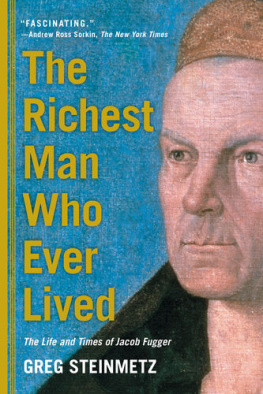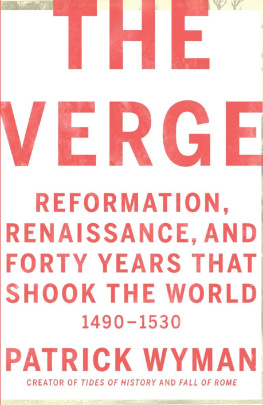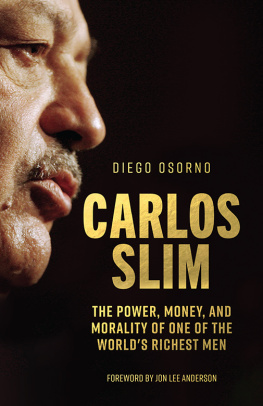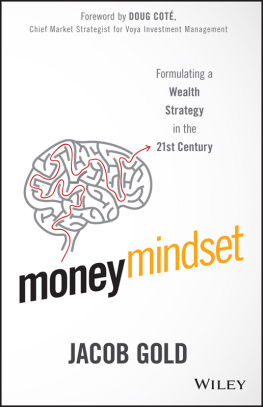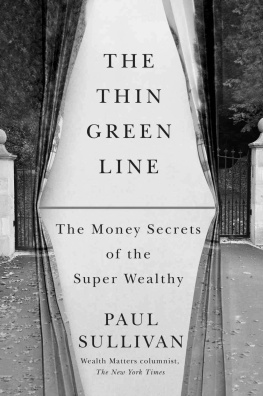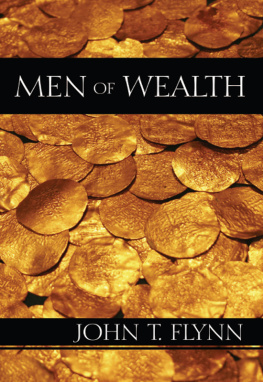Thank you for downloading this Simon & Schuster eBook.
Join our mailing list and get updates on new releases, deals, bonus content and other great books from Simon & Schuster.
C LICK H ERE T O S IGN U P
or visit us online to sign up at
eBookNews.SimonandSchuster.com
We hope you enjoyed reading this Simon & Schuster eBook.
Join our mailing list and get updates on new releases, deals, bonus content and other great books from Simon & Schuster.
C LICK H ERE T O S IGN U P
or visit us online to sign up at
eBookNews.SimonandSchuster.com

Simon & Schuster
1230 Avenue of the Americas
New York, NY 10020
www.SimonandSchuster.com
Copyright 2015 by Greg Steinmetz
All rights reserved, including the right to reproduce this book or portions thereof in any form whatsoever. For information address Simon & Schuster Subsidiary Rights Department, 1230 Avenue of the Americas, New York, NY 10020.
First Simon & Schuster hardcover edition August 2015
SIMON & SCHUSTER and colophon are registered trademarks of Simon & Schuster, Inc.
For information about special discounts for bulk purchases, please contact Simon & Schuster Special Sales at 1-866-506-1949 or .
The Simon & Schuster Speakers Bureau can bring authors to your live event. For more information or to book an event, contact the Simon & Schuster Speakers Bureau at 1-866-248-3049 or visit our website at www.simonspeakers.com.
Interior design by Ruth Lee-Mui
Jacket design by Jackie Seow
Jacket art Bayerische Staatsgemaelde-Sammlung, Augsburg, Germany/Bridgeman Images
Library of Congress Cataloging-in-Publication Data
Steinmetz, Greg.
The richest man who ever lived : the life and times of Jacob Fugger / Greg Steinmetz.
pages cm
1. Fugger, Jakob, 14591525. 2. BankersGermanyBiography. 3. MoneylendersGermanyBiography. 4. BusinessmenGermanyBiography. 5. GermanyHistory12731517. I. Title.
HG1552.F795S74 2015
332.092dc23
[B]
2014047507
ISBN 978-1-4516-8855-9
ISBN 978-1-4516-8857-3 (ebook)
To my parents, Art and Thea Steinmetz, two Swabians who, like Fugger, know the value of hard work and thrift.
Contents

Introduction

O n a spring day in 1523, Jacob Fugger, a banker from the German city of Augsburg, summoned a scribe and dictated a collection notice. A customer was behind on a loan payment. After years of leniency, Fugger had finally lost patience.
Fugger wrote collection letters all the time. But the 1523 letter was remarkable because he addressed it not to a struggling fur trader or a cash-strapped spice importer but to Charles V, the most powerful man on earth. Charles had eighty-one titles, including Holy Roman emperor, king of Spain, king of Naples, king of Jerusalem, duke of Burgundy and lord of Asia and Africa. He ruled an empire that was the biggest since the days of ancient Rome, and would not be matched until the days of Napoleon and Hitler. It stretched across Europe and over the Atlantic to Mexico and Peru, thus becoming the first in history where the sun never set. When the pope defied Charles, he sacked Rome. When France fought him, he captured its king. The people regarded Charles as divine and tried to touch him for his supposed power to heal. He is himself a living law and above all other law, said an imperial councilor. His Majesty is as God on earth.
Fugger was the grandson of a peasant and a man Charles could have easily strapped to the rack for impertinence. So it must have surprised him that Fugger not only addressed him as an equal but furthered the affront by reminding him to whom he owed his success. It is well known that without me your majesty might not have acquired the imperial crown, Fugger wrote. You will order that the money which I have paid out, together with the interest upon it, shall be reckoned up and paid without further delay.
People become rich by spotting opportunities, pioneering new technologies or besting opponents in negotiations. Fugger (rhymes with cougar ) did all that but had an extra quality that lifted him to a higher orbit. As the letter to Charles indicates, he had nerve. In a rare moment of reflection, Fugger said he had no trouble sleeping because he put aside daily affairs as easily as he shed his clothing before going to bed. Fugger stood three inches taller than average and his most famous portrait, the one by Drer, shows a man with a calm, steady gaze loaded with conviction. His coolness and self-assurance allowed him to stare down sovereigns, endure crushing amounts of debt and bubble confidence and joviality when faced with ruin. Nerve was essential because business was never more dangerous than in the sixteenth century. Cheats got their hands cut off or a hot poker through the cheek. Deadbeats rotted in debtors prison. Bakers caught adulterating the bread received a public dunking or got dragged through town to the taunts of mobs. Moneylenders faced the cruelest fate. As priests reminded their parishioners, lenderswhat the church called usurersroasted in purgatory. To prove it, the church dug up graves of suspected usurers and pointed to the worms, maggots and beetles that gorged on the decaying flesh. As everyone knew, the creatures were confederates of Satan. What better proof that the corpses belonged to usurers?
Given the consequences of failure, its a wonder Fugger strove to rise as high as he did. He could have retired to the country and, like some of his customers, lived a life of stag hunting, womanizing and feasts where, for entertainment, dwarfs popped out of pies. Some of his heirs did just that. But he wanted to see how far he could go even if it meant risking his freedom and his soul. A gift for rationalization soothed his conscience. He understood that people considered him unchristian and unbrotherly. He knew that enemies called him a usurer and a Jew, and said he was damned. But he waved off the attacks with logic. The Lord must have wanted him to make money, otherwise he wouldnt have given him such a talent for it. Many in the world are hostile to me, Fugger wrote. They say I am rich. I am rich by Gods grace without injury to any man.
When Fugger said Charles would not have become emperor without him, he wasnt exaggerating. Not only did Fugger pay the bribes that secured his elevation, but Fugger had also financed Charless grandfather and taken his family, the Habsburgs, from the wings of European politics to center stage. Fugger made his mark in other ways, too. He roused commerce from its medieval slumber by persuading the pope to lift the ban on moneylending. He helped save free enterprise from an early grave by financing the army that won the German Peasants War, the first great clash between capitalism and communism. He broke the back of the Hanseatic League, Europes most powerful commercial organization before Fugger. He engineered a shady financial scheme that unintentionally provoked Luther to write his Ninety-five Theses, the document that triggered the Reformation, the earth-shattering event that cleaved European Christianity in two. He most likely funded Magellans circumnavigation of the globe. On a more mundane note, he was among the first businessmen north of the Alps to use double-entry bookkeeping and the first anywhere to consolidate the results of multiple operations in a single financial statementa breakthrough that let him survey his financial empire with a single glance and always know where his finances stood. He was the first to send auditors to check up on branch offices. And his creation of a news service, which gave him an information edge over his rivals and customers, earned him a footnote in the history of journalism. For all these reasons, it is fair to call Fugger the most influential businessman of all time.
Next page

